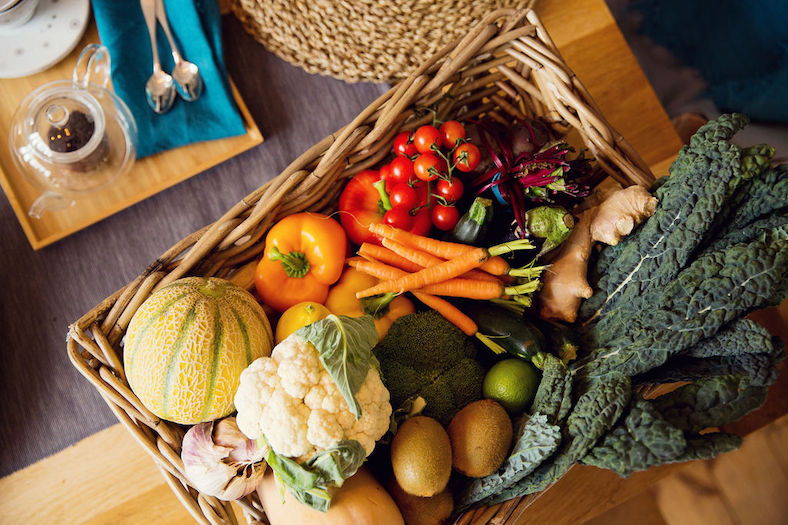
Here are my top five nutrition tips for helping to balance your hormones
If your hormones are out of whack or you struggle with anything to do with your mood, the very first thing to do is to take a good look at your diet and consider how much ‘real food’ you eat and how much of your diet is processed. If you switched to ONLY real food, making everything from scratch, you would see a big improvement in your health. Ready to do more?
Fruit and vegetables are packed full of nutrients compared to many other foods and are beneficial for all aspects of health. Focus on the low-sugar fruits (the ones that grow in this country ahead of tropical fruits like bananas, mango and pineapple). For veg, eat more of the stuff that grows above the ground as – as a general rule – it contains less starch and keeps blood sugar levels stable.
Choose a good source of protein at every meal and snack. Protein is needed for growth and repair in the body. Good sources of protein include eggs, organic meat and poultry, oily fish like wild salmon, trout, etc. and Greek yoghurt, nuts and seeds.
Carbohydrates can be broken down into simple carbs and complex carbs. In simple carbs, the sugar molecules that occur either naturally or as a result of added sugar are quickly digested and absorbed into the bloodstream. Examples of simple carbs are cakes, cookies and pastries (in fact, anything with sugar), white bread, rice and pasta, and potato. The result is you get a short-term high but afterwards you feel more tired, fuzzy-headed and hungry. Complex carbs are made up of hundreds of sugar molecules, and these are absorbed much more slowly so they keep you feeling fuller and focussed for longer. Focus on bringing more of these into your diet ahead of simple carbs. They include brown rice, oats, beans, chickpeas and lentils, quinoa, sweet potato.
Healthy fats are an essential part of a good diet and should not be seen as the enemy. Fats are also the building blocks of all hormones and keep cell membranes and nerve cells healthy. The best sources of fat are flaxseeds (also known as linseeds), avocado, olive oil, coconut oil, oily fish like wild salmon, nuts and seeds.
And don’t forget about sleep, movement, and stress relief when you’re looking at hormones! These are just as important as nutrition. If you’d like to know more, why not get in touch and see how I can help you.
![]()
Please get in touch and find out more - I offer a free 30-minute exploratory call.